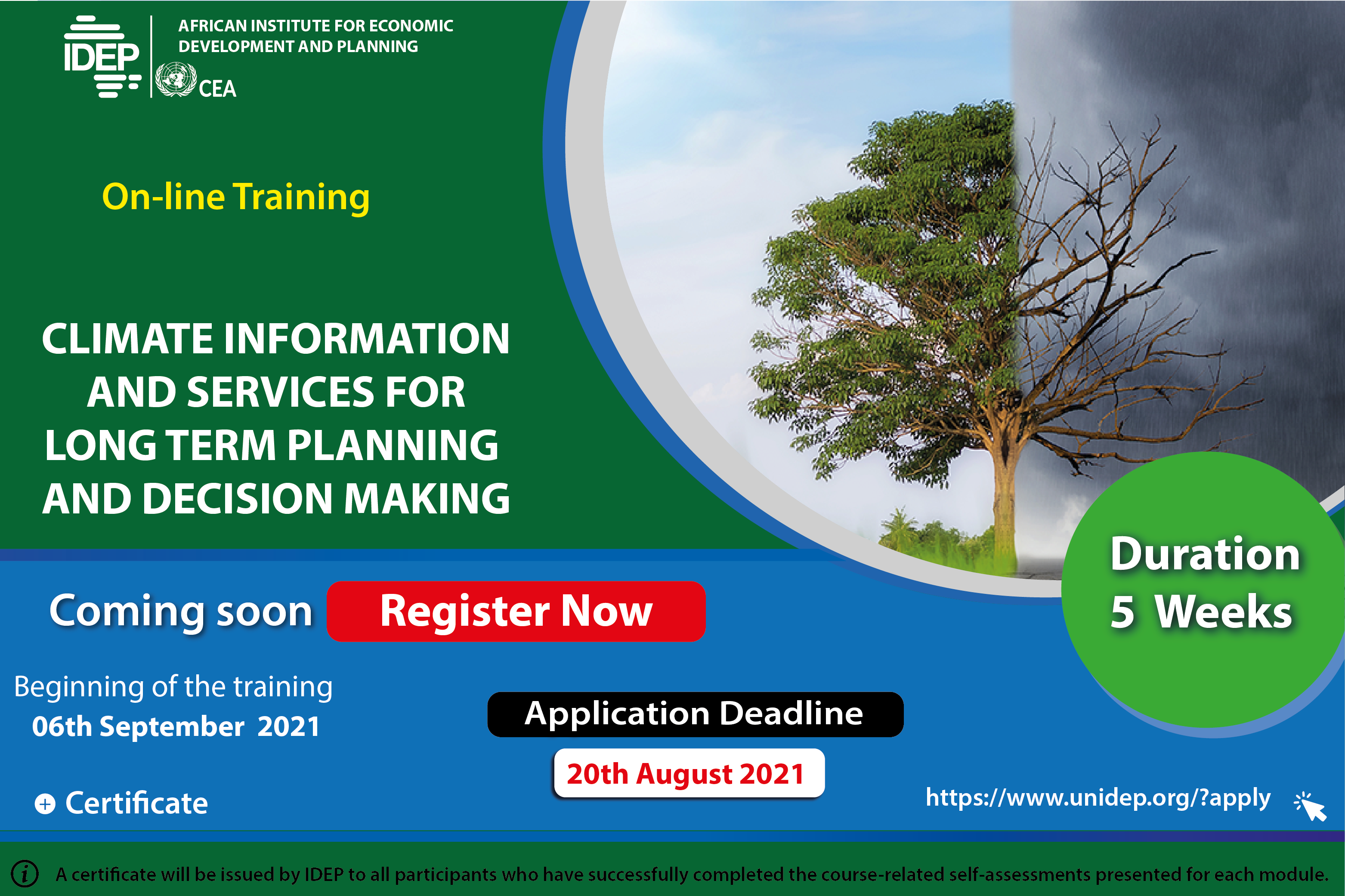Climate Information And Services For Long Term Planning And Decision Making
PROGRAM RATIONALE
ACPC, in collaboration with its partners, has been at the forefront of efforts to promote climate information learning. In 2016 for example, the ACPC convened a training of trainers (ToT) event on “Mainstreaming Climate Information and Services into legislation, development policies and plans”, which was attended by legislators and youth groups drawn from across the continent. In tandem with this activity, the Centre, under its then DFID-funded Weather and Climate Information Services for Africa (WISER) programme commissioned
a collaboration with the UN CC: Learn Partnership to co-develop a self-paced online learning module on “Climate information and services”.
The provision of climate information services involves collating, analysing, packaging-up and distributing climate data on variables such as temperature, rainfall, wind, soil moisture, ocean conditions and extreme weather indicators. With high-quality data tailored to their needs, farmers can plan what to plant and when; armed with accurate data and analyses, policymakers have the information they need to make properly informed decisions. Meanwhile, governments are much more likely to integrate climate polices incorporating
demand-led, evidence-based information into economic and development planning. In most parts of the continent, the level of skills and awareness of climate information services remains inadequate to respond to the widespread impacts of extreme weather events, such as droughts, hurricanes and heat strokes.
LEARNING OBJECTIVES
The course will introduce the fundamentals of Mainstreaming Climate Information Service and how this process will build resilience, efficiency and productivity in sectoral policies. The course will as well equip stakeholders with skills to be able to cope better with increased variability and improve livelihoods across the continent.
